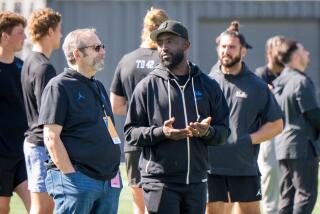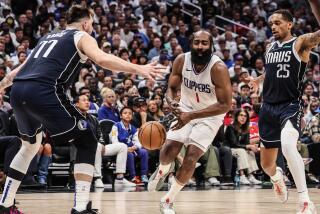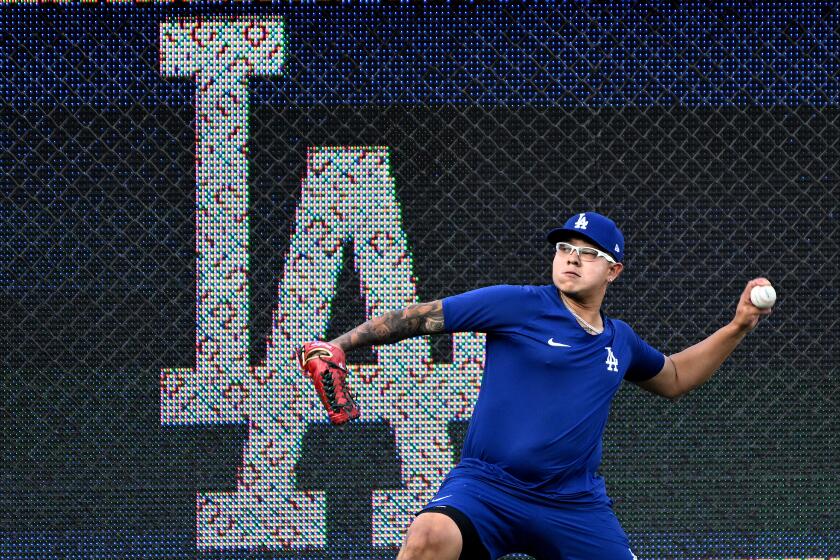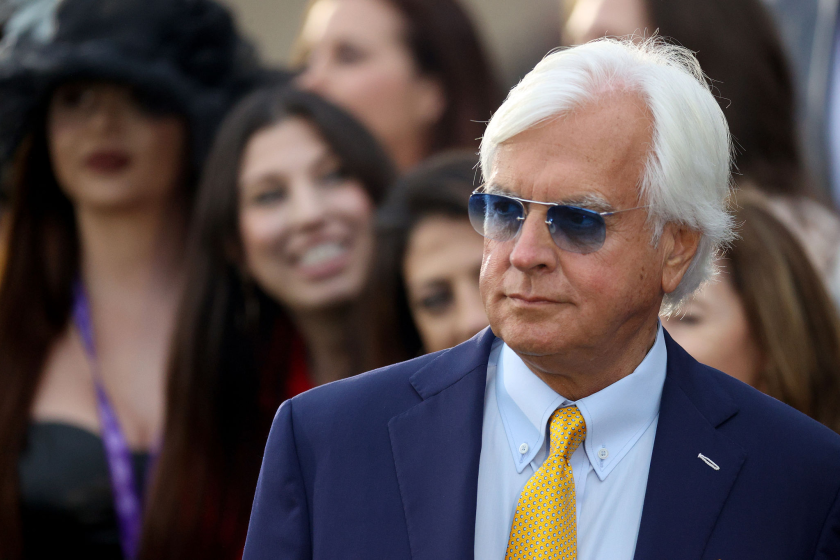Remembering When the Locals Caddied
Not enough hands.
This is the caddie’s unofficial motto on days like Thursday, when a steady downpour delayed the opening round of the Masters by 5 1/2 hours and made a looper’s labor more menial than usual.
“One hand to keep the umbrella over your man, another to get the dry towels out of the bag, another to pull the club, and if he asks for a snack,” said Andy Prodger, who is on K.J. Choi’s bag this week, “well, you get the idea.”
And if the sky looked a bit more mournful, well, there was probably a good reason: It was a day very much like this one, 23 years ago, that sounded the death knell for one of the best traditions at the Masters.
A steady drizzle and diving temperatures made the first round in 1982 feel more like hockey than golf. Play finally was called at 4:30 p.m. with three dozen golfers and their caddies, all of them locals and employed by Augusta National at the time, still on the course. On Friday, club officials shuffled the tee times, and even though the local paper printed the new schedule, the news reached precious few caddies. Some stayed out late partying, some slept in, still others simply assumed their players’ tee times were unchanged. The result was chaos.
David Graham had to send his wife out onto the practice range to shag balls, and some players arrived on the first tee at 7:30 a.m., faced with the prospect of carrying their own bags or -- in Tom Watson’s words, “using pull carts.” By the next year, after a scathing letter from Watson, then-Augusta Chairman Hord Hardin relented and allowed the players to bring their regular bag-toters.
“All Hardin said about the change was, ‘We got some good caddies, just not enough to go around,”’ recalled Ward Clayton, a PGA Tour staffer and former Augusta Chronicle sports editor whose book, “Men on the Bag,” is a colorful history of those caddies. “That was the beginning of the end.”
What was once a source of pride in Augusta’s black community quickly dried up. From a group that included legendary characters named “Cemetery,” “Stovepipe,” “Skinny” and “Marble Eye,” only Carl “Skillet” Jackson remains. He’s caddied for Ben Crenshaw every year since 1976, handing off the loop only in 2000 while he underwent treatment for cancer.
“Guys were proud of those jobs. It was their livelihood, but even more than that, they were so much a part of this place,” Jackson said. “They covered the ground year after year until they knew it like the back of their hand.”
According to Clayton, that’s hardly an exaggeration. “I heard stories that Pappy Stokes, kind of the godfather around here, could sit in the middle of any fairway, see a guy on the green standing over a 20-footer and call out the break.”
Whether any of the full-time pros carrying those bags today could do the same is questionable.
“This place is different,” Crenshaw said. “It’s not just about yardage or reading greens. It’s like there are secrets buried all over the course, new ones from year to year, and you have to figure out how to crack them. I don’t think anybody was better at that than the locals. When guys decided to bring in their caddies, I think they were trading knowledge for familiarity.”
Jackson, though, provided both during Crenshaw’s two Masters wins. Together, they left behind an image for the ages in 1995, when the stoic Jackson dropped his reserve and consoled Crenshaw down the stretch Sunday as the golfer fought back tears just days after burying his mentor and friend, Harvey Penick.
Hardship was nothing new to Jackson. He left school in the ninth grade because the little money he picked up caddying made a big difference to a single mother trying to support a family in 1958. He worked odd jobs when Augusta National was closed, but never stopped honing his craft. He caddied briefly for Crenshaw out on tour, but decided the life wasn’t for him.
In between, Jackson put four of his own kids through college, with two more to go. Now 58, he runs a caddie program at the Alotian Club outside Little Rock, Ark., and returns to Augusta for this one week only -- and for Crenshaw.
“So many stories,” Jackson said, standing beneath an awning as the rain pounded down early Thursday. “So many ... “
Stories like Jariah Beard carrying Fuzzy Zoeller AND his bag to victory in 1979, barely a week after Zoeller first set foot on the grounds and told his caddie, “Just tell me where to hit it.”
Stories like “Iron Man” Nathaniel Avery, watching Arnold Palmer losing his grip on the final day in 1960, and speaking up after The King hit a pitiful chip at the 15th. “Mr. Palmer,” he asked quietly, “are we choking?” Palmer replied with two birdies and walked off with another green jacket.
All those stories and more are captured in Clayton’s book, along with what might be the best excuse ever spoken. Willie Frank Perteet, known around here as “Cemetery,” and Dwight Eisenhower’s favorite caddie for years, arrived late for a gig one evening and told the gathering:
“Ladies and gentlemen, I been unavoidably detained by the president of the United States.”
More to Read
Get our high school sports newsletter
Prep Rally is devoted to the SoCal high school sports experience, bringing you scores, stories and a behind-the-scenes look at what makes prep sports so popular.
You may occasionally receive promotional content from the Los Angeles Times.






